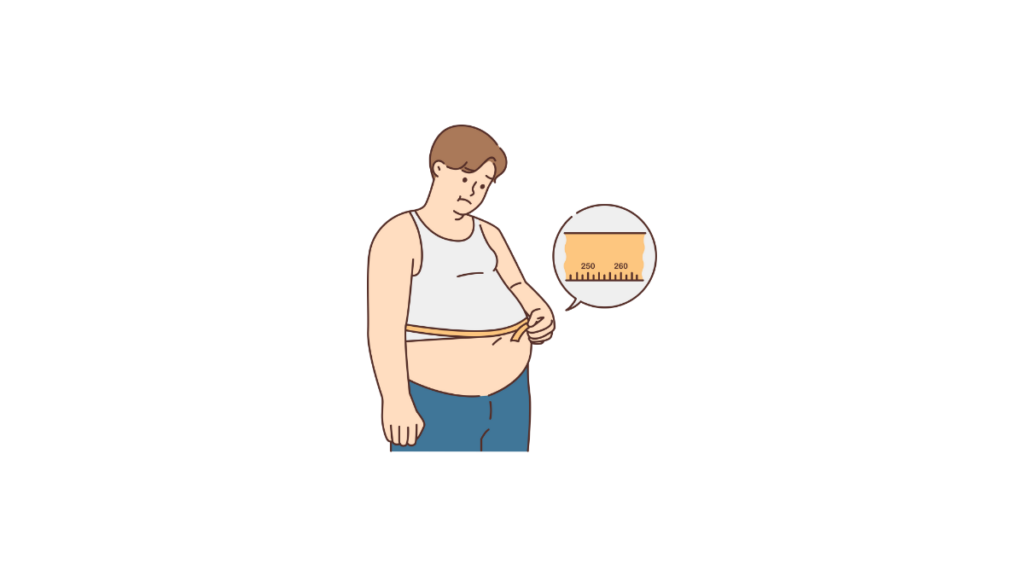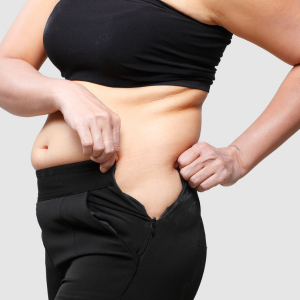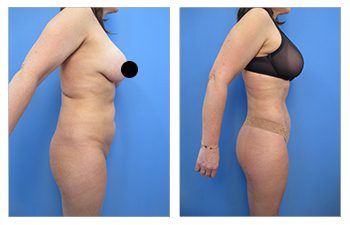Introduction: What happens if I gain weight after liposuction?
We get the question, “What happens if I gain weight after liposuction?” almost every week. The more weight you gain following liposuction, the less dramatic your results will be. This is why we stress the importance of being at your comfort weight when you come to see us.
What is the comfort weight?
Your comfort weight is defined by the weight that you feel comfortable maintaining. To be more specific, your comfort weight should be a healthy weight that you feel comfortable keeping while adhering to a healthy lifestyle and balanced diet. For example, if you work out three times a week and eat 2000 Calories per day, you need to keep doing this.

Designing your liposuction surgical plan
When we evaluate and design our surgeries, we take into account all of the areas of your body and create a comprehensive plan that will help us create your ideal figure. We treat your body like it is a canvas that we expect to stay stable. This is why you should not diet or start losing weight right before surgery. If you show up to our office underweight, it will only make us liposuction less fat assuming that this is your normal figure. Similarly, you should not gain weight for your BBL. This will only result in fat cells that are larger than desirable. Larger fat cells actually don’t make it when they are harvested since they get injured while traveling through the cannula holes. What you should do instead is be at your comfort or stable weight. This will protect you from the concern, “What happens if I gain weight after liposuction?”
Exception to Comfort Weight
There is one exception to losing weight prior to surgery and this involves patients who are desiring body contouring but who have a taut abdomen. A taut abdomen describes a belly that is tight and inflated like a balloon due to excessive intra-abdominal fat, termed visceral fat. Visceral fat is typically protective as it surrounds your organs and gut and is there to isolate any injury or infection that occurs. However, when it is excessive in size it can have a negative effect on your health as it is associated with heart disease.
Moreover, when considering body contouring, it is critical to have slack in the abdomen so that the skin redundancy can be eliminated following undermining. When the abdomen is taut, neither liposuction nor skin excision can be performed. These patients are urged to lose weight to decrease the visceral fat that is pushing on their abdominal muscles and overlying skin. These patients are often asked to return to the office no earlier than six months following their change in lifestyle and weight loss journey.

Introduction to Post-Liposuction Weight Dynamics
The pursuit of a desired body contour often leads many to consider liposuction, a popular cosmetic surgery procedure. However, a common concern for patients is the potential for weight gain post-surgery. Understanding the dynamics of body fat distribution and lifestyle impacts post-liposuction is crucial for maintaining the desired results. This article delves into the intricacies of weight gain after liposuction and offers guidance for long-term maintenance of surgical outcomes.
The Liposuction Procedure: A Brief Overview
Understanding Liposuction
Liposuction is a surgical procedure designed to remove excess fat from specific body areas. It involves suctioning out fat cells to reshape and contour the body. While techniques may vary, including tumescent, ultrasound-assisted, and laser-assisted liposuction, the core objective remains the same: to permanently remove fat cells from targeted areas.
Goals and Limitations of Liposuction
It’s essential to understand that liposuction is not a weight-loss solution. Instead, it’s meant for body contouring, targeting areas resistant to diet and exercise. Its effectiveness is measured in inches and the quality of contouring, not just weight loss.
Body Fat Distribution After Liposuction
How Liposuction Alters Fat Cells
Liposuction removes fat cells from the treated area. These cells do not regenerate, meaning the results can be long-lasting. However, the remaining fat cells can still expand if one gains weight, potentially altering the results.
Redistribution of Fat Post-Surgery
If weight gain occurs post-liposuction, the remaining fat cells in untreated areas can enlarge, leading to fat redistribution. This can result in fat accumulation in new areas, which may be less familiar to the patient’s body profile prior to surgery.
Weight Gain After Liposuction
The Nature of Post-Liposuction Weight Gain
Weight gain after liposuction can be due to a variety of factors including lifestyle, diet, and genetic predispositions. It’s important to note that gaining a few pounds is unlikely to dramatically alter the results, but significant weight gain can.
Areas Prone to Fat Accumulation
Common areas for post-liposuction weight gain include the abdomen, back, and thighs. However, the pattern of weight gain is individual and can depend on genetics and the specific areas treated.

The Impact of Lifestyle on Liposuction Results
Importance of Diet and Exercise
What happens if I gain weight after liposuction? Maintaining liposuction results is heavily dependent on a balanced diet and regular exercise. Adopting a healthy lifestyle is crucial for preventing significant weight gain and preserving surgical outcomes.
Lifestyle Changes for Long-Term Maintenance
What happens if I gain weight after liposuction? Lifestyle changes such as a consistent exercise regime, a balanced diet, and regular follow-ups with a healthcare provider are key to sustaining liposuction results.
Clinical Evidence
What happens if I gain weight after liposuction? Clinical studies have shown that patients who maintain a stable weight after liposuction tend to retain their post-operative contours. Conversely, those who gain weight may see a proportionate increase in fat deposits in untreated areas.
Patient Experiences
What happens if I gain weight after liposuction? Anecdotal evidence from patients suggests that those who adopt a healthier lifestyle post-surgery are more satisfied with their long-term results compared to those who do not.

Managing Expectations and Future Weight Fluctuations
Setting Realistic Expectations
Patients should have realistic expectations. Liposuction is not a safeguard against future weight gain. It’s a body contouring tool that works best alongside a healthy lifestyle.
Strategies for Dealing with Future Weight Gain
Strategies for managing minor weight gain include regular physical activity, a balanced diet, and mindfulness about lifestyle choices.
Professional Guidance and Follow-Up Care
The Role of Follow-Up Consultations
Regular follow-ups with the cosmetic surgeon are essential. These appointments allow for monitoring of the surgical results and provide an opportunity for patients to discuss any concerns.
When to Consider Additional Procedures
In some cases, additional procedures may be considered if significant weight gain occurs post-liposuction. This should be a carefully considered decision made in consultation with a cosmetic surgeon.
Embracing a Balanced Approach
Embracing a balanced lifestyle approach is key to maintaining liposuction results. While liposuction provides a head start in body contouring, its long-term success largely depends on post-operative lifestyle choices.
Conclusion: What happens if I gain weight after liposuction?
What happens if I gain weight after liposuction is a question that does raise red flags for us. This is because liposuction is intended to improve your self-esteem and give you motivation to increase your physical activity and lifestyle. “How long after lipo will I see results?” is another question that we get. This is in fact what is observed in 99 % of patients undergoing liposuction. If patients are concerned about what happens if they gain weight after liposuction, we must counsel them first. We have to ensure that patients are committed to maintaining or even improving what liposuction will provide them. Liposuction should be considered a stepping stone to improve your appearance and life!

